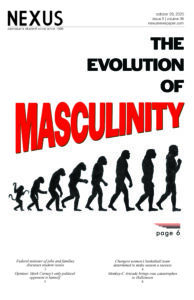Taking attendance in post-secondary education is an unnecessary practice that removes students’ ability to seek out occasional, one-time learning experiences. We get it: you want us to show up, but don’t we deserve a touch of autonomy?
Taking attendance at this age is infantilizing. I’m one of the older students around, so I haven’t had to stick my hand up and half-shout “Here!” in a while, but I truly believe that this is a wholly unnecessary part of my adult education. And let’s get one thing straight—this is adult learning in the ordinary policy sense: additional study pursued after initial education.
As students in post-secondary education, we have a lot on offer. There are tons of beneficial lectures, talks, and other events that happen throughout the year, but not all of them line up nicely with our class schedules. I had to miss out on the Truth and Reconciliation ceremony that was held last month in order to attend one of my classes. As a foreigner who is still integrating himself with society here in Canada, I’m gutted that I missed out on that opportunity, but I’m still torn on what the “correct” choice was here—should I have attended the ceremony and risked my attendance, or was I correct in maintaining my attendance and missing out on this learning opportunity instead?

I understand, as do many of my fellow students, that “showing up and putting in the hours” is one of the core tenets of holding down a job in “the real world.” But think of it this way—an event put on by the college, let’s say a visiting speaker who is relevant to your degree, is happening at the same time as one of your classes. Would you maintain your perfect attendance and skip the event, or would you skip your class, attend the event, and catch up on the course learnings later but risk your attendance score?
To put a real-world spin on it, let’s think of the college as our employer, and an opportunity for education outside of class as a company BBQ. Would you skip the company BBQ, an important team-building event, in order to continue working like normal? If your answer is “it depends on how I’m handling my workload,” then you understand the exact point that I’m trying to make here. These one-time events are crucial to broadening our horizons and we, as adults, should be able to make the call as to whether or not we can fit it into our personal workload.
The vast majority of us already understand that if we don’t put in the work for our classes, then we will fail. We’re already here, every single day (and often into the night) studying, attending lectures, taking part in our labs, and, overall, fighting to succeed. Don’t we deserve a bit of anxiety-free autonomy if a genuine learning opportunity arises? For the students that don’t understand this, then I say that they deserve the autonomy to learn; after all, there’s a reason why we all know not to touch a hot stove, and it’s better to fail now and learn this lesson early in life rather than later.
I’m not advocating for more time away from classes, by any means—you can ask any of my teachers, past or present. What I’m advocating for here is our autonomy as adults entering (or re-entering) the workforce to make our own decisions about what we can handle, without fear of unnecessary repercussions.
We will do what we need to do to succeed.
